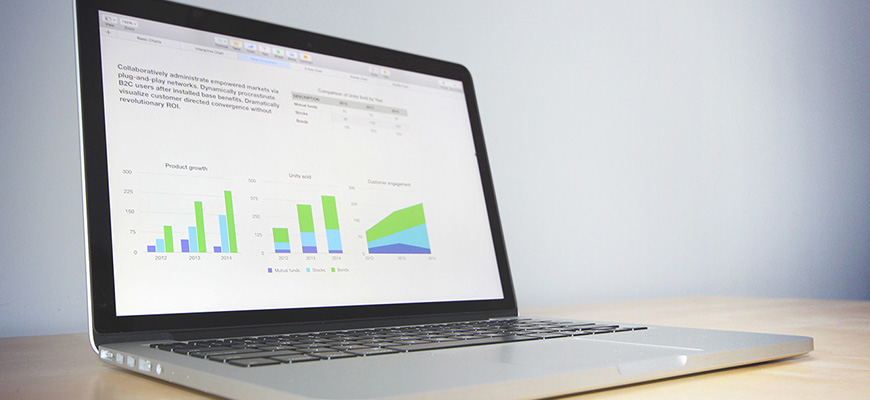Here are eight tangible steps you can take to improve your credit score. Your credit score directly impacts your ability to get approved for financing, including credit cards, loans and mortgages.
The Borrowell Team
Nov 28, 2025
Learn More
Sep 09, 2015 • 4 min read
There are certain numbers that people just know – their annual income, age, weight, and perhaps even their social insurance number. This list tends to change through time as technology advances; for instance one may not need to remember their spouse’s phone number with the advent of cellphones and programs like Google Contacts or Outlook. However, there are certain numbers that people should know regardless of technological advancements.
A report by Bank of Montreal in February of this year found that 56% of Canadians have never checked their credit score and only 14% check at least once a year. This news is particularly disconcerting when credit scores determine 90% of industry credit decisions and can affect whether someone is able to rent an apartment, buy a car or even get a job, according to the Consumer Financial Protection Bureau.
What’s in a number?
Credit scores are available through consumer reporting agencies like Equifax and Transunion and are used to gauge a potential borrower’s creditworthiness and ability to negotiate the lowest rates. Currently, one of the biggest components for credit-scoring models is historical information, which includes: the person’s payment history, amounts owed, length of credit history, types of credit used and how many times the individual applies for new credit.
Those with limited credit history, also known as “unbanked” or “underbanked” (a growing group in Canada particularly amongst millennials), simply cannot demonstrate that they are reliable borrowers with the current credit-scoring model. This presents a problem.
FICO, LexisNexis and Equifax plan to complete a pilot program in the coming months to make a score based on alternative credit data
In the US, FICO, LexisNexis Risk Solutions & Equifax are joining together to generate an alternative data score that could reliably score 15 million US consumers who do not have enough credit data to generate traditional credit scores. The alternative data being used includes phone and utility bills from Equifax as well as property and public records from LexisNexis. The new FICO Score will work alongside existing FICO® Scores enabling credit issuers to identify creditworthy individuals and also use the alternative score without having to eradicate existing systems, thus lowering costs and accelerating time to market. It is yet to be determined when FICO will launch the new score in other countries like Canada.
Globally, marketplace lenders are also working towards a more financially inclusive environment.
PayPal’s Peter Thiel recently invested $100M in a German marketplace lender Kreditech, that uses around 20,000 data points to assess a person’s suitability for a loan. These include data lines such as bank account statements and cell phone bills to behavioral information such as web-browsing habits and social network data. Currently, Kreditech refuses 80% of applicants and they claim to have better default rates than some traditional banks. Kreditech funding helps spotlight the rising interest in, and funding of, groups who use big data scoring in Europe.
Leading Canadian marketplace lenders like Borrowell look to enhance credit underwriting as more Canadians borrow on their platform
Borrowell’s data sets are relatively small to date, however the complexity and massive size of the consumer loan industry in Canada indicates the impact big data could have on informing new product models in the future. Since launching in March of this year, Borrowell is showing to be very good at reducing the “pain points” for the Canadian consumer in providing a convenient loan process. Consumers can get a loan in minutes at an affordable rate and receive funds in under 48 hours.
Moving forward with a credit scoring system that uses good data not just big data
Monitoring the kind of alternative data being used in credit scoring models will be essential for marketplace lenders. Jason Flemish, VP of Consumer Credit and Risk Products at Equifax points to real-time payment behavior data such as how timely a consumer is when paying their cell phone bill. He views this as a desirable data source because it gives a good indication of how well the consumer would treat a future line of credit. Others argue that real-time data has its limits particularly for those who fall short on their payments at certain times of the year due to unpredictable obstacles like losing a job or unexpected healthcare expenses.
Ultimately, the use of data in credit scoring models will continue to evolve. Access to big data sets enable companies around the globe to find better indicators of creditworthiness. Companies like Borrowell are working toward creating a more financially inclusive environment for Canadians; however, the first step for Canadians is to know their credit score.
Borrowell is dedicated to making financial stability possible for everyone. With over 3 million members, the company offers free credit scores in Canada, education, weekly credit monitoring, credit building solutions, as well as digital tools like AI-powered credit coaching and personalized financial product recommendations. For more information, visit borrowell.com or download the mobile app for Android or iOS.
Here are eight tangible steps you can take to improve your credit score. Your credit score directly impacts your ability to get approved for financing, including credit cards, loans and mortgages.
The Borrowell Team
Nov 28, 2025
Learn More
Thanks to rent reporting services, you can now build your credit score by paying your rent on time every month.
Janine DeVault
Jun 17, 2024
Read More
A credit builder loan is specifically designed to help establish and boost your credit.
Jessica Martel
Aug 28, 2025
Read More

